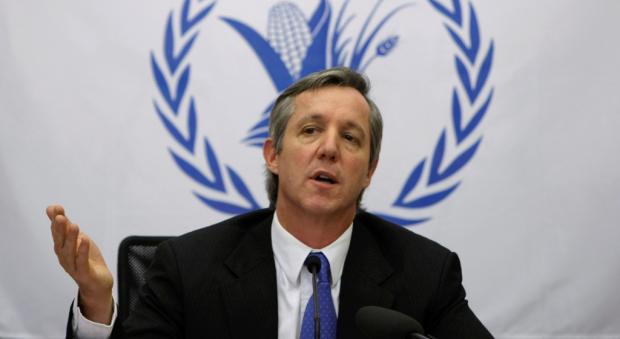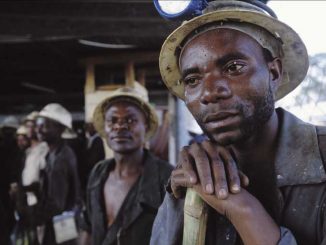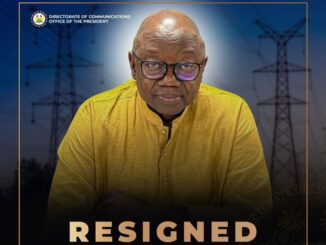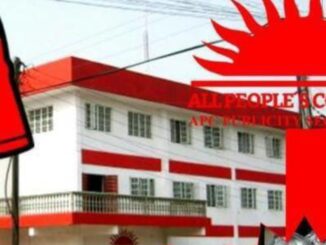
13 December 2014 – Amid a spike in Ebola transmission rates in Sierra Leone, the United Nations envoy coordinating the massive global crisis response has travelled to the West African nation to help implement a surge in efforts to contain the outbreak.
“We need to put in place a big surge to get those case numbers down, and we’ve been working on implementing that surge in the last week,” Anthony Banbury, head of the UN Mission for Ebola Emergency Response (UNMEER), said in a press release following his two-day visit to the country’s capital, Freetown, from 11 to 12 December.
“I came to see how that’s going, how the preparations are and to see what more UNMEER can do,” he added.
ANTHONY BANBURY
With some 8,069 cases, Sierra Leone is now the worst-affected country in West Africa, according to UNMEER’s latest data. Together, Guinea, Liberia and Sierra Leone have so far registered over 18,000 cases of Ebola, including more than 6,300 deaths.
The increasingly high transmission rates in Sierra Leone were reported in recent weeks, leading the Government of Sierra Leone and UNMEER to mount a surge response.
Earlier in the week, the UN Special Envoy on Ebola, Dr. David Nabarro, also noted that Sierra Leone had become an “area of concern” due to the high levels of viral transmission and urged “a much more intense response.”
He pointed out that some of the most experienced Ebola responders in the world were currently working in that area, together with UNMEER’s “Western Area Surge team,” the Government, the UN World Health Organization (WHO) and partners to ensure there were enough beds and burial teams.
In addition, the UN envoy explained the logistical difficulty of staffing the Ebola treatment units with 300 beds that require some 300 people. The staff needed to change shifts every three to four hours because of the heat of the protective clothing, and each changeover was a dangerous moment, as was each interaction with patients, particularly with needles.
During his trip to Freetown, Mr. Banbury visited an Ebola Treatment Unit (ETU) being run by the Sierra Leone Ministry of Health and the Sierra Leone armed forces and praised the work being done on the ground.
“It’s one of the few ETUs anywhere in the region that is run by the people in the country,” said Banbury. “They have very good outcomes, good survival rates; it’s working very well. It’s impressive.”
Mr. Banbury is winding down his appointment as UNMEER chief and will be succeeded by Ismail Ould Cheikh Ahmed of Mauritania in early January 2015.
UN NEWS SERVICE




Leave a Reply